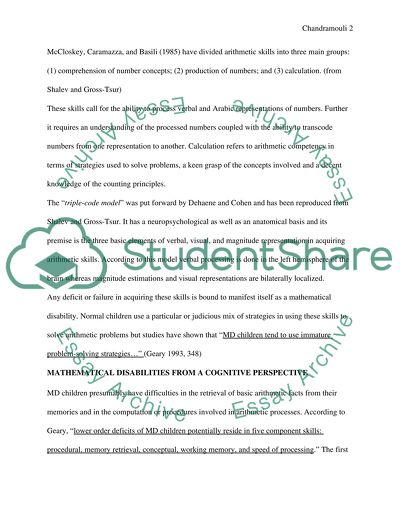Mathematical Cognition and Mathematical Learning Difficulties Essay. Retrieved from https://studentshare.org/miscellaneous/1499776-mathematical-cognition-and-mathematical-learning-difficulties
Mathematical Cognition and Mathematical Learning Difficulties Essay. https://studentshare.org/miscellaneous/1499776-mathematical-cognition-and-mathematical-learning-difficulties.


